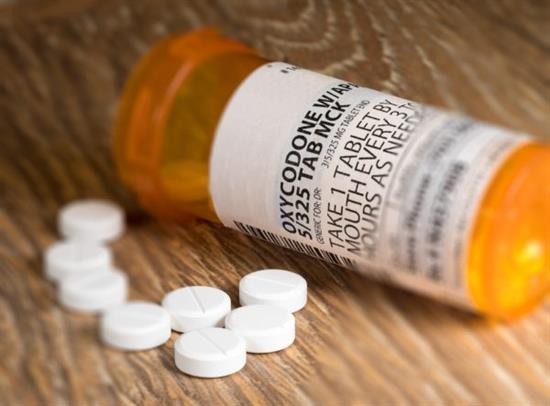In the News
House leaders testify on impact of opioid epidemic, potential legislative fixes at hearing
Washington,
October 13, 2017
Tags:
Healthcare
A bipartisan group of more than 50 House members took the opportunity to share stories about the impact the opioid epidemic has had on the districts they represent and to advocate for solutions at a “Member Day” hearing on Wednesday.
A bipartisan group of more than 50 House members took the opportunity to share stories about the impact the opioid epidemic has had on the districts they represent and to advocate for solutions at a “Member Day” hearing on Wednesday. Convened by U.S. Rep. Michael Burgess (R-TX), the chairman of the House Energy and Commerce Subcommittee on Health, the hearing featured testimony from U.S. Reps. Susan Brooks (R-IN), Fred Upton (R-MI), Greg Walden (R-OR), John Katko (R-NY), Evan Jenkins (R-WV) and Larry Bucshon (R-IN). House Minority Leader Nancy Pelosi (D-CA), and U.S. Reps. Bill Keating (D-MA) and G.K. Butterfield (D-NC) also testified. Brooks testified about a partnership forged between Indiana University (IU) and Indiana Gov. Eric Holcomb’s office that will leverage $50 million in funding over five years to establish the nation’s largest state-based response plan. The Responding to the Addictions Crisis initiative will use every IU campus to focus on data collection and analysis, training and education, policy analysis and development, addiction sciences, and community and workforce development. “I am proud of Indiana University’s commitment to tackling the opioid crisis head-on, and that major efforts continue across our state to help our friends, loved-ones and neighbors struggling with drug abuse,” Brooks said. “Every two and a half hours a Hoosier is sent to the hospital for an opioid overdose,” she said. “That is why I am developing legislation to ensure that physicians and other medical professionals are part of the solution so they can help prevent the onset of addiction by educating people of the dangers of drug abuse as well as support those already struggling with addiction.” Upton, meanwhile, noted that an additional $1 billion will be distributed to states to promote opioid addiction treatment and prevention under the bipartisan 21st Century Cures Act that he spearheaded and which became law last year. The first round of that funding was delivered this year, with Michigan receiving more than $16 million. Upton said he supports the work of the National Institutes of Health (NIH), which has been meeting with the biopharmaceutical industry and academia to find innovative ways for government and industry to form partnerships to combat the opioid epidemic. “There are also things we in Congress can help NIH with in these endeavors,” Upton said. “First, we need NIH to develop more options for overdose reversal. Second, we need the evidence NIH can develop on effective therapies for addiction. And finally, we must accelerate the development of non-addictive pain medicines.” Katko discussed legislation that he introduced, the Stop the Importation and Trafficking of Synthetic Analogues (SITSA) Act of 2017, H.R. 2851, to provide more tools to local, state and federal law enforcers to crack down on traffickers of synthetic drugs. “This year, Syracuse area hospitals saw a record number of overdoses due to synthetic drug abuse,” Katko said. “In May, over 15 individuals had overdosed on synthetic drugs and were taken to the ER in the span of 24 hours. …Toxic, synthetic drugs are designed to mimic street drugs like marijuana, LSD, cocaine, ecstasy and other hard drugs. They can be more potent than the real thing and often times are more deadly.” Highlighting the magnitude of the issue, House Energy and Commerce Committee Chairman Walden noted that 90 Americans die from opioid overdoses every day, and more than 1,000 are treated for opioid abuse. “In 2016 alone, more than 64,000 Americans died from drug overdoses, and in Oregon alone, more people died last year from drug overdoses than from car accidents,” Walden said. Jenkins highlighted a bill that he authored, the NAS Healthy Babies Act, which required a Government Accountability Office study on neonatal abstinence syndrome and efforts to treat babies and mothers under Medicaid. His bill was included in the Comprehensive Addiction and Recovery Act (CARA), which is now law. Bucshon testified about the importance of fully implementing CARA. The Ripon Advance |

